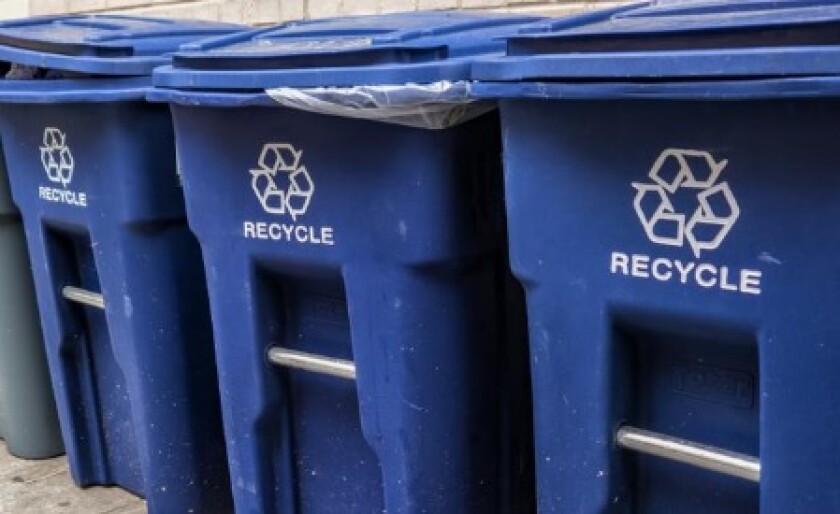
BY THE LOS ANGELES TIMES EDITORIAL BOARD
SEPT. 29, 2021 5 AM PT
You’ve surely seen it before on a laundry detergent bottle label, printed on a ready-made salad bag or stamped onto the container of a thousand other products lining the shelves of grocery and retail stores: A symbol with three “chasing” arrows that form a triangle. It may be green or black. It might have a number between 1 and 7 inside the triangle, which corresponds to the type of plastic resin used to construct it, or have a suggestion about how to recycle.
To the consumer, this symbol conveys the message that this item is recyclable and, for the sake of the planet, ought to be treated accordingly and not dumped into the trash bin. But to environmentalists and waste reduction advocates the symbol is, in many cases, a half-truth used by manufacturers to “greenwash” their products.
The truth is that many, if not most, of the plastic products bearing the symbol aren’t being recycled when they are placed in recycling bins. In fact, less than 10% of all the single-use plastic ever made has been recycled, and that is unlikely to change without serious intervention.
That’s the thinking behind Senate Bill 343 by Sen. Ben Allen (D-Santa Monica). The bill would prohibit manufacturers from using a “chasing arrows” symbol on their products starting in 2024 unless they can prove it is not just potentially recyclable but is actually getting recycled in any meaningful way in California. It was passed by the Legislature and is now awaiting action by Gov. Gavin Newsom, along with a package of other sensible, if incremental, proposals to improve recycling.
Editor’s Note: In New Jersey, Senator Fred Madden and Assemblyman Paul Moriarty have sponsored identical bills–S2145 and A1554–-that would prohibit the sale, distribution, and import of certain products marked as recyclable, unless the Department of Environment Protection determines that the products are widely recycled. Readers: Do you favor this approach? Let us know by clicking the comment link under the top headline. Do you know of similar bills in Pennsylvania, New York, or Delaware?


